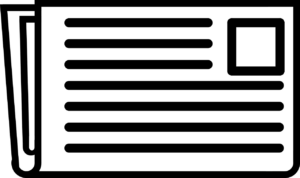Editing a journal
Do you run a journal? Do you want to create a new journal, organize the transition of your publication to digital distribution, switch to the diamond model or change your publication workflow?
The Publishing Department of the Documentation Direction can help you!
We will support you throughout your editorial project. We meet with you to establish a diagnosis of your objectives and advise you on the entire publishing process.
To contact us: ddoc-edition-contact@univ-lorraine.fr

Creation
- INPI’s declaration
- ISSN and DOI
- roles and functioning of journal’s committees
- editorial workflow

Digital transition
- publication models
- economic models
- presentation of distribution platforms: Open U Journals, Open Edition, Episciences, …
 Editorial quality
Editorial quality
- implementation of Quéro editorial quality criteria
- transparency of editorial procedures
- open science policy
 Legal aspects
Legal aspects
- journals’ legal statutes
- authors’ contracts
- distribution licenses (Creative Commons)
- image rights
 Distribution platform Open U Journals
Distribution platform Open U Journals
- training on distribution platform: style sheet, functionalities, plugin
- help in structuring review space: content, graphics
 Structured publishing
Structured publishing
- Métopes, XML, LaTeX
- 1st level support
- advanced training and advice provided by the EDUL
 Referencing
Referencing
- documentary tools: library catalog, Sudoc, Mir@bel, open repository HAL
- databases: DOAJ, WoS, Scopus, etc
- search engines
 Research data
Research data
- data management practices
- search for a disciplinary repository
- help to deposit on DOREL
In partnership with the University of Bordeaux and INRAE, UL is collaborating in the FNSO Open U Journals 2024 project to deploy an open access scientific journal publishing platform (free access for authors as well as for readers).
Open U Journals offers a complete online publishing solution, from the management of the editorial flow (submission of articles, organization of peer review, corrections, acceptance) to the publication of articles online (in issues or in continuous flow, via 3 file formats: HTML, XML and PDF).
Multidisciplinary, it is intended to host SHS and STM journals. It is based on the open source software OJS and benefits from the support of the PKP community.
Obtain funding
The Université de Lorraine financially supports diamond journals from the Lorraine site.
Since 2020, it has contributed to several calls for projects from the Fonds National pour la Science Ouverte. In 2024, it is initiating a funding program for diamond journals linked to its open science support fund.
The budget for this program comes from savings made on the withdrawal of resources from the publisher Wiley (2024) and support from the French Ministry of Higher Education under the Contrat d’Objectifs, de Moyens et de Performance (COMP) in 2025 and 2026. The aim is to perpetuate this arrangement beyond 2026.
> See the list of supported journals.
Diamond 2026 journal funding program:
Annual funding of €2,000 is offered to eligible journals. An additional application may be submitted to cover exceptional expenses.
Eligibility criteria :
- not having already received funding from COPIL SO as part of an FNSO call for projects or start-up aid;
- demonstrating a strong connection with the Lorraine site :
- the journal is published by the Université de Lorraine or
- the publishing or editorial secretariat is provided by a UL staff member or
- the journal is managed by a UL teacher-researcher, who holds a decision-making position (publishing director, editor-in-chief) or
- the journal publishes on local history, geography or heritage;
- being published online with immediate free open access or having a strong project to transition to immediate free open access within 1 year;
- not charging publication fees (Article Processing Charges);
- being hosted on a platform aligned with editorial quality criteria (Quéro criteria, FNSO criteria) or applying to such a platform within the year. The following platforms will be considered: Cairn, Centre Mersenne, Episciences, Erudit, OJS (subject to conditions), OpenEdition, OLH, Open U Journals, journal incubators, Persée, SciPost. The list may change with the agreement of the COPIL SO;
- submiting an editorial review (in terms of form): the review is generally carried out by the publishing platform; if not, it may be carried out by the UL publishing support service;
- submiting a scientific review (in terms of content): if the scientific review is not provided by the publishing platform, the journal may request two reviews from experts in its discipline, to be presented to the COPIL SO;
- be indexed in the DOAJ or apply to join this system within the year. Failure to meet this criterion must be justified and will be subject to additional arbitration by the OS Steering Committee.
- benefiting from another source of funding. This funding may be external or internal to UL and come from a laboratory, a cluster, etc. It is strongly recommended that at least 20% (approximately) of the journal’s total budget come from another source of funding. Failure to meet this criterion must be justified and will be subject to additional arbitration by the OS Steering Committee.
Ineligible costs:
- For journals maintaining two distribution formats (digital and print), costs related to the print format are not eligible.
- Expenses related to the financing of salary costs are not eligible.
To apply for funding: please send the completed form to ddoc-edition-contact@univ-lorraine.fr before 17/12/2025.
Evaluation of applications : Applications for funding are reviewed by UL’s Open Science Steering Committee. Requests exceeding the €2,000 lump sum may be prioritized in order to respect the available budget.
